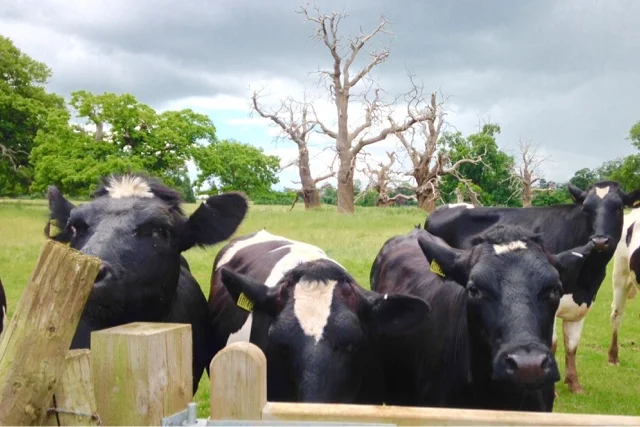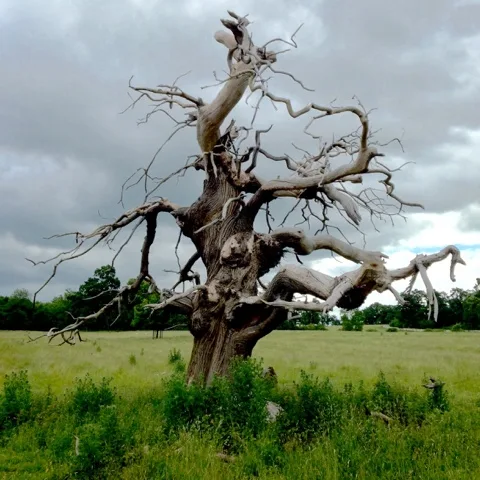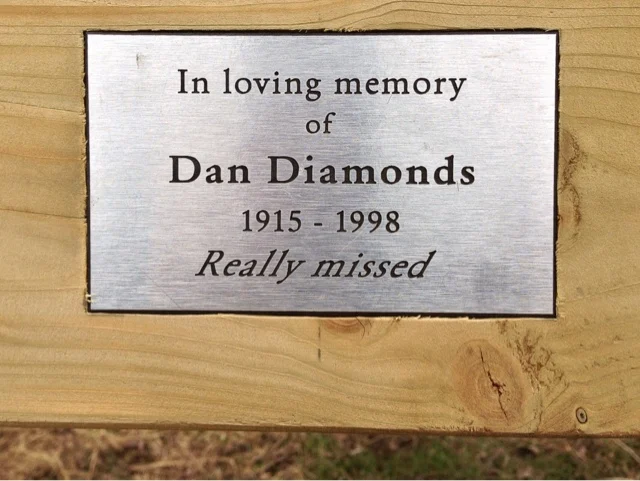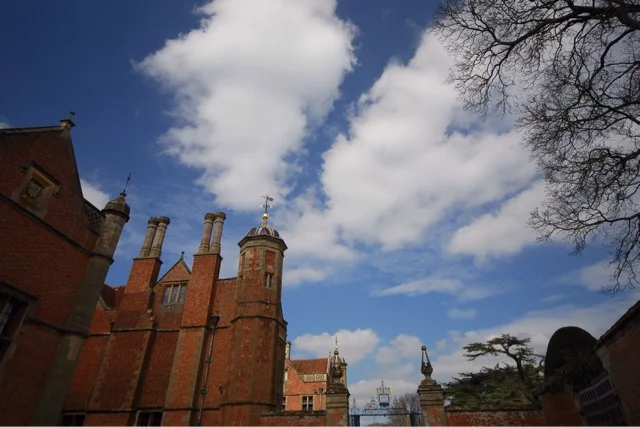Once, in a particularly insalubrious pub, an old man with a face like a wet leather satchel gripped my forearm, locked his milky blue eyes on mine, and enunciated very precisely: “Never forget to look up, son. Never forget to see what’s around you.” The utter drunken seriousness with which he imparted these pearls of wisdom gave me pause. I remember staring blankly at velveteen wallpaper and a middle-aged barmaid with a wide smile and a deep cleavage, and thinking that the oracle of the Nag’s Head had probably had enough votive lager. At the time, it sounded trite. [Now] it makes more sense than ever. I feel like I’ve rediscovered my own country, found a series of secret rooms in a house I’ve lived in for my entire life. The reality is that England has some of the most inspiring countryside and driving in Europe, if not the world. We have every type of road, and far too much weather. We have excitingly stupid wildlife, and views that make your jaw hit the floor while your brain struggles. But, best of all, we have the freedom to enjoy them, as long as we make the effort…. Put simply, we should heed the advice of small, drunk old men in pubs, and remember to appreciate what we’ve got on our doorstep. We should look up, and look around. And get out there and do it.
– Tom Ford: Top Gear magazine
You meet some funny (meaning ‘strange’; and sometimes ‘unusual’) creatures when out on walks – and not just in Tysoe, either. Earlier in the week, on this “slow-time Monday” – but not for the first time – I came across a group of Ents having what my dad would call a ‘confab’ (more properly, of course, an ‘Entmoot’).
The few, sparsely scattered, other folk following the park walk trails at Hanbury Hall appeared totally oblivious – were in too much of a rush to complete the course, their goal; or, even in their leisure, just weren’t interested in the “unhasty” nature of the discussion. And, to be honest, I would have passed them by, too – intently admiring the restoration of George London’s early eighteenth-century landscape; and listening to the busy birdlife and the sheep’s echolalia – were it not for the assembled young cattle, all singularly rapt in ruminative attention. There was obviously wisdom to be imparted, and to be absorbed.
If I had not “looked up” – habitually concentrating on avoiding bard-traps in the ridge-and-furrow, and putting my already-soiled boots once more unto the the copious amounts of sheep and cattle droppings – I would not have spotted the Ents’ wise and friendly faces above me: looking down (but not in the patronizing way that implies), welcoming all who would stop and tarry a while, as is their wont. We should therefore be grateful to “the Elves ‘curing the Ents of their dumbness’ [and] that it was a great gift that could not be forgotten”: for, if there are to remain guardians of this fragile planet, it is to them we should look and listen, and take great heed.
After mutual introductions had been made – at length; and in a relaxed-but-formal fashion very much to my liking (“Decided? No, we’ve only just finished saying good morning…”) – and after being complimented on dressing appropriately in raindrop-repellent ’roo bush-hat and showerproof fleece (there was a threatening Edward Seago sky: which would soon deliver on its dark promises) – the tallest of the Ents asked me if I had yet visited the last of their nearby wards: the black poplars, on the edge of the old deer park. I responded that I had; and that I had wondered – admiring them, their solitude and fortitude – what supernatural presence had protected these unfamiliar beings – “the most endangered native timber tree in Britain” – from prevailing destruction. Now I knew. And was thankful.
These trees, although commonly seen during the middle ages, found it difficult to adapt to modern agricultural and woodland management methods. Today they are rare so we hope to plant more using cutting from these trees.
– National Trust: Hanbury Hall park walks
As is their modest way, the Ents – as “Shepherds of the Trees” – regretted that their efforts had not been more successful, more numerous; but were pleased that – albeit almost too tardily – we humans (at least some of us) had finally begun to appreciate what lay around us; how such life – “The force that through the green fuse drives the flower… that blasts the roots of trees” – was precious beyond jewels, beyond anything man-manufactured. “Would that the trees might speak on behalf of all things that have roots, and punish those that wrong them!”
Eventually, I had to leave them to their concerned contemplations, and continue on my way. Their leader bowed from his great height, and held me gently by the hand – his bark much gentler, less craggy, than its sight would imply – and thanked me for my time. I replied that it was freely given; that I was grateful for their involvement; and that I would soon – by their measure – return. It was time well-spent, I said; and most, most valuable.
Noticing, as I moved on, that they were not marked on the provided map, scrumpled into my jeans pocket (and now lying before me, as I write), I wondered where I would next encounter them. I was sure that, whatever their ubiety, the poplars would be well within their sight; and that, if necessary, they would find me.
Passing through the burgeoning woodlands, after skirting Goodwins Hill Coppice; and before ascending the grassy slope to St Mary the Virgin Church – beautifully situated, with gorgeous panoramas (over the Vale of Evesham, back towards the Cotswolds), and backed by the dense Church Coppice – the conversation stayed with me: and I viewed all the trees I encountered (the older ones often acting as shade and shelter to the estate sheep and their now well-grown lambs) with fresh vision. I wondered, though, if the Ents would approve of the beautiful decorative carpentry within: much of it – including a pair of eye-feasting, neck-breaking, barrel-vaulted chapel roofs – originating from the Vernon family’s (the founders and then residents of Hanbury Hall) major restoration of 1840. The land is now well-managed and -loved; but, all those years ago, were the originating woods replanted to replace those toppled in the name of creed and craft…?
¶
It was only upon leaving the church that the foreshadowed rain finally fell. As I reached the bottom of the hill, just before I reached the avenue of fortunate oak trees (almost sold for timber, in the early 1960s, by Doris Vernon, the widow of Sir George Vernon, “to raise some extra funds”; but saved by the National Trust on “a surprise but well timed visit”), I walked into a grey wall of wetness. An unfortunate couple in lighter clothing had to be rescued by the farmer, who had been herding the sheep from field to field – bouncing the poor, drenched souls back to the comfort and respite of Hanbury’s servants’ hall tea-room, in his covered John Deere Gator (a vehicle I am still trying to persuade my dear Lady Bard to buy me for my birthday…!).
Was it purely coincidence that the trees saved me, with such perfect timing – like a lamb to the water… – from being soaked…?





















